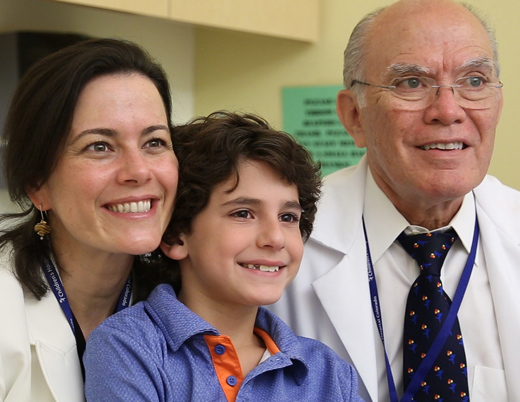Key takeaways
-
This study analyzed outcomes for patients with constipation treated in our hospital’s radiologically supervised bowel management program.
-
Most patients with constipation had unsuccessfully tried other bowel management programs without abdominal X-rays.
-
The study found 96% of our participants experienced successful outcomes, underscoring the importance of including daily abdominal X-rays in bowel management programs.
-
Criteria for a successful outcome included a voluntary bowel movement at the program's end, no accidents between movements and no residual feces in post-movement X-rays.
-
Using radiologically supervised bowel management can help patients avoid undergoing ineffective treatments and unnecessary surgery.
Research study background
Chronic idiopathic constipation is the most common colonic motility disorder in children. It causes disruptions to daily and social life and reduces quality of life. The condition is challenging to manage given wide-ranging symptoms and the absence of a clinical severity scale. Common symptoms include persistent fecal impaction and involuntary bowel movements. Patients with constipation are also more likely to have a megarectum and suffer from behavioral disorders.
A multidisciplinary team from the International Center for Colorectal and Urogenital Care at Children’s Hospital Colorado created an six-day radiologically supervised bowel management program, which employs abdominal X-rays to help inform individualized treatment plans. This cross-sectional retrospective study evaluated patient outcomes using participant data from July 2016 to January 2023.
The bowel management program defines a successful outcome as:
- Use of a laxative or the enema recipe results in a big voluntary bowel movement on the last day of the program.
- There are no accidents between movements.
- Post-bowel movement adnominal radiographs show no residual feces in the rectum, sigmoid and left colon.
Of the 80 patients included in the study, 66% had a megarectum and 23% had a behavioral disorder. Before participating in the hospital’s radiologically supervised bowel management program, 95% of patients previously underwent treatments that did not include radiological supervision, and 71% had attempted two or more treatments. Polyethylene glycol was prescribed to 90% of patients treated elsewhere, 46% received enemas and 43% used Senna (the program’s preferred laxative). Six of these patients underwent unnecessary surgical procedures that did not improve their constipation.
After completing the hospital’s program, 96% of patients — all but three — achieved a successful outcome. Seventy-three percent of successfully treated patients took Senna and 27% were on enemas. Megarectum was detected in 93% of patients with successful outcomes and in all patients with unsuccessful outcomes. Behavioral disorders were present in 89% of patients with successful outcomes and in 11% of unsuccessful outcomes.
“The only way to guarantee successful treatment is to make decisions and modification during bowel management based on monitoring the medical treatment with abdominal X-ray.”
Luis De La Torre-Mondragon, MD
Relevance to practice
This study demonstrates that Children’s Colorado’s radiologically supervised bowel management program effectively treats chronic idiopathic constipation and highlights the importance of timely referral to avoid undergoing ineffective treatments and unnecessary surgical procedures. Study authors noted the program has also successfully treated patients with fecal incontinence and neurogenic bowel.
Featured researchers

Andrea Bischoff, MD
Pediatric surgeon
International Center for Colorectal and Urogenital Care
Children's Hospital Colorado
Professor
Surgery-Peds Surgery
University of Colorado School of Medicine

Luis De La Torre-Mondragon, MD
Pediatric colorectal surgeon
International Center for Colorectal and Urogenital Care
Children's Hospital Colorado
Associate professor
Surgery-Peds Surgery
University of Colorado School of Medicine

Laura Judd-Glossy, PhD
Adolescent psychologist
Pediatric Mental Health Institute
Children's Hospital Colorado
Associate professor
Psychiatry-Child-CHC
University of Colorado School of Medicine

Alberto Peña, MD
Founding Director
International Center for Colorectal and Urogenital Care
Children's Hospital Colorado
Professor emeritus
Surgery

Lauren Schneider, CPNP-AC/PC
Certified pediatric nurse practitioner
Center for Children’s Surgery
Children’s Hospital Colorado
Instructor
Surgery-Pediatric Surgery
University of Colorado School of Medicine





 720-777-0123
720-777-0123










